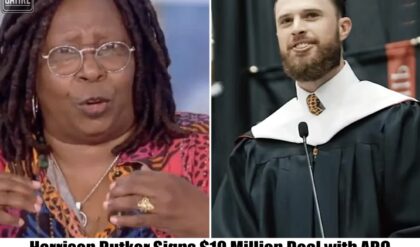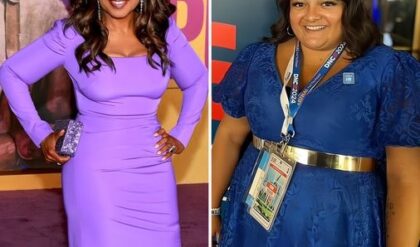Beyoncé’s ‘Cowboy Carter’ isn’t a country album. It’s worse.

It’s an album about awards shows.
That’s the only way I’ve been able to process the intrinsic corniness of this new Beyoncé album, “Cowboy Carter,” which, very much like the most punishing of Grammy nights, runs way too long, yet still finds time to involve Post Malone. Rumored to be her big pivot into country music, Beyoncé has headfaked us all, opting instead for an omni-genre grandeur that still only manages to feel cosmetic at best. All in all, “Cowboy Carter” amounts to nearly 80 minutes of entirely palatable aesthetic choices being made by one of the most imaginative and decisive singers alive.
Among those decisions: genre-blind duets that vary from cute (Miley Cyrus) to cringe (Post Malone); emcee cameos from country heroes we know (Dolly Parton, Willie Nelson) and others we should (Linda Martell); low-hanging interpolations (Patsy Cline’s “I Fall to Pieces,” the Beach Boys’ “Good Vibrations”); lower-hanging tribute covers (the Beatles’ “Blackbird,” Parton’s “Jolene”) — all of which seem to communicate the very same message that the record industry keeps beaming into our living rooms every Grammy night: A reverence for the music of the past will magically unify us, illuminating our shared path into the future.
That’s a nice bedtime story, but did everybody forget that Beyoncé has been doing this work all along? Did Beyoncé? As a member of Destiny’s Child, her biggest hits had crunky thump, acoustic guitar twinkle, girl-group shoobie-doo, marching band cannonade and gobs more. She’s always known how to stitch disparate musical ideas together. Why spell it out now? In one song-bridging interlude on “Cowboy Carter,” an old radio dial spins through thickets of static, stopping on the music of Son House, Sister Rosetta Tharpe, Chuck Berry, Roy Hamilton. It’s a noble shout-out in principle, but the method feels so basic and hand-holdy, the kind of device you might see in a music documentary that presumes you’re an idiot.
Why is all this happening in the first place? The creative spore of “Cowboy Carter” announces itself on the first track, “Ameriican Requiem,” in which Beyoncé alludes to her frosty reception at the 2016 CMA Awards, where she sang “Daddy Lessons” — a twangy dabble about patrilineal angst from her masterstroke album, “Lemonade” — alongside the Chicks. “Used to say I spoke too country, then the rejection came,” Beyoncé sings nearly eight years later. “Said I wasn’t country enough. Said I wouldn’t saddle up, but if that ain’t country, tell me what is.” Having firmly established her album’s animating something-to-prove-ness, she waits until the penultimate track to rap, “AOTY, I ain’t win,” referring to her perennial snubbings for the most coveted of Grammys. Let’s be totally clear, here: Beyoncé is a generational voice who has deserved much better at various awards shows that continue to fail to recognize the importance of Black music. But immortalizing your Grammy grievances in song? That’s something Drake does.
Skip to end of carousel
The Style section
Style is where The Washington Post covers happenings on the front lines of culture and what it all means, including the arts, media, social trends, politics and yes, fashion, all told with personality and deep reporting. For more Style stories, click here.
End of carousel
Her sour grapes make “Cowboy Carter” feel zeitgeisty in the saddest possible way. We’re living in highly aggrieved times, an era in which Americans who populate the highest tax brackets continue to manufacture new ways to feel like they’ve been cheated out of something. In popland, I suppose Beyoncé has more of a right to feel this way than, say, Taylor Swift, but it should still feel pretty gross to the rest of us.
Like during “Ya Ya,” when Beyoncé turns her attention directly toward that aforementioned rest of us. She’s playing another heavy-heeled game of genre hopscotch, opening the song with the plunging bass line from Nancy Sinatra’s “These Boots Are Made for Walkin’” before mutating everything into a Sly Stone-ish romp. Then, a question for all you hard-working Americans out there: “Are you tired working time-and-a-half for half the pay? I just pray that we don’t crash, keep my Bible on the dash, we gotta keep the faith.” So thoughts and prayers? That’s a multimillionaire’s solution to income inequality? Before your palm can reach your forehead, she starts singing a Beach Boys line about “picking up good vibrations.” The whole thing should sting your brain with the cumulative sadism of a middle school talent show, a GOP campaign event and a Rock & Roll Hall of Fame induction ceremony.
getting her ideas to blend on this album, it’s like she’s lining up the ingredients on the countertop and calling it a cake. Is it possible to do your greatest singing on your worst album? She sounds absolutely scrupulous throughout these 27 songs, multitracking her voice to sound like En Vogue, the Dixie Hummingbirds, every iteration of Freddie Mercury and a choir of cherubs, sometimes all together, all at once. (On “Blackbiird” — the letter “i” makes extraneous appearances in her song titles because “Cowboy Carter” is “act II” of Beyoncé’s “Renaissance” album trilogy — she’s joined by some similarly angelic voices: young Black country singers Tanner Adell, Tiera Kennedy, Reyna Roberts and Brittney Spencer.)





